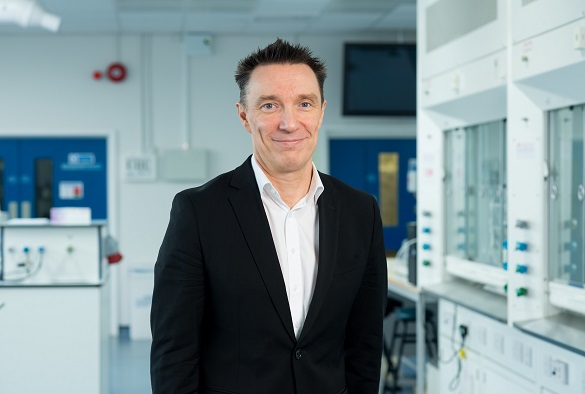
Professor Andy Cooper, from the University’s Department of Chemistry, has been elected as a Foreign Member of the Chinese Academy of Sciences (CAS), one of the highest honours that China bestows on a citizen of a foreign country.
The appointment is in recognition of Professor Cooper’s significant contribution to the field of science and technology in China and his high academic standing internationally.
Professor Cooper was among 30 individuals worldwide elected by the General Assembly of CAS.
He joins a list of Foreign Members that includes many Nobel Prize winners, such as Professor Jean-Marie Lehn (Nobel Prize for Chemistry, 1987), Professor Rudolph Marcus (Chemistry, 1992), Professor Sir Paul Nurse (Medicine, 2001), Professor Karl Barry Sharpless (Chemistry, 2001 & 2022), Professors Sir Konstantin Novoselov and Sir Andre Geim (Physics, 2010), and Professors Sir James Fraser Stoddart and Ben Feringa (Chemistry, 2016).
He said: “I am deeply honoured to have been elected as a Foreign Member of the Chinese Academy of Sciences. It is also a testament to my very talented co-workers, which has included a significant number of Chinese PhD students and Postdoctoral researchers.”
A Fellow of the Royal Society, Professor Cooper’s research is pushing boundaries at the interface of AI, robotics, and chemistry.
In 2020, he and his team built the world’s first mobile robot chemist and he is further developing this technology to fast forward advances in materials science with the support of a Royal Society Professorship.
Professor Cooper is Academic Director of the Materials Innovation Factory, an £81 million facility at the forefront of advanced materials discovery and development.
He is also Director of the Leverhulme Centre for Functional Materials Design, an interdisciplinary research centre that brings together chemical knowledge with state-of-the-art computer science to develop a new approach to the design of functional materials at the atomic scale.
The Chinese Academy of Sciences is the world’s largest research organisations and is consistently ranked among the top research organisations around the world.